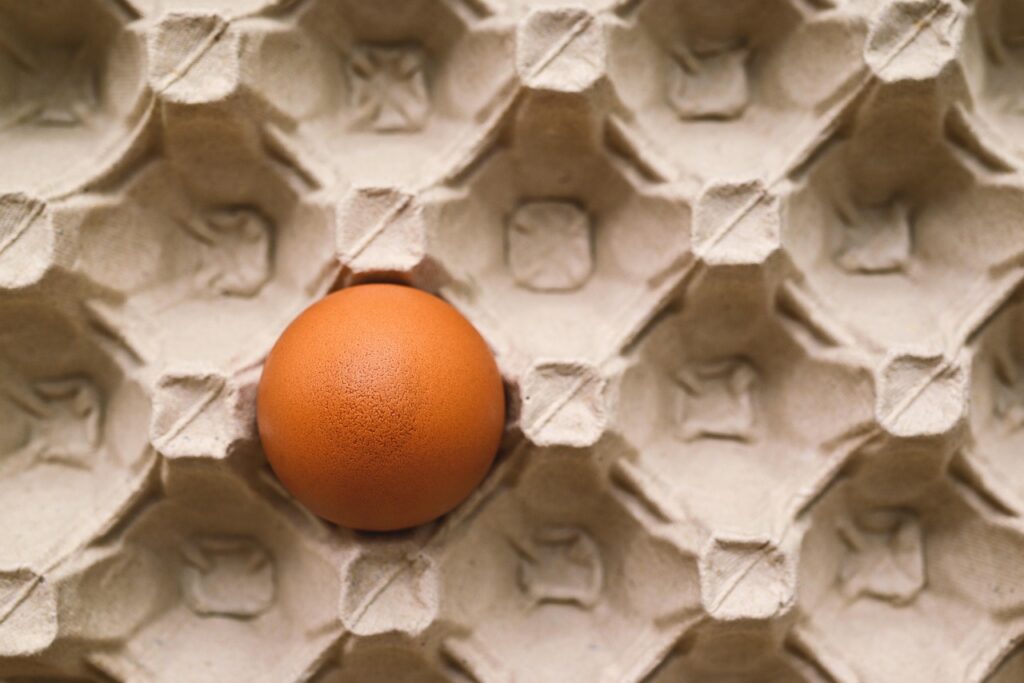Introduction: Why Egg Storage Matters
Eggs are a kitchen staple in nearly every household, but how you store them directly affects your health, cooking outcomes, and even food waste. While refrigeration is the go-to method in many countries, there’s growing curiosity about room temperature storage, especially among backyard chicken owners and fans of natural food practices. So, how long can you keep fresh eggs on the counter—and what determines their shelf life?

Image by Erika Varga from Pixabay
Understanding the Natural Egg Coating (Bloom)
When hens lay eggs, they come with a thin, protective coating called the bloom or cuticle. This natural barrier prevents bacteria from entering the shell and helps retain moisture, essentially acting as the egg’s first line of defense.
Benefits of the Bloom:
- Natural protection from salmonella and other bacteria
- Moisture retention which keeps the egg fresh longer
- Reduced need for refrigeration (in the short term)
Once this coating is washed off, the egg becomes more vulnerable to spoilage and should be refrigerated immediately.
Washed vs. Unwashed Eggs: What’s the Difference?
Unwashed eggs maintain their bloom, making them suitable for countertop storage. Washed eggs—common in U.S. supermarkets—have had their bloom removed, making refrigeration essential.
| Type of Egg | Has Bloom? | Safe for Countertop? | Shelf Life (Room Temp) |
| Unwashed | Yes | Yes | 2–3 weeks |
| Washed | No | No | 2 hours max |
USDA Guidelines vs. European Practices
In the U.S., the USDA mandates egg washing to reduce salmonella risk, which is why grocery store eggs are always found refrigerated. In Europe, eggs are typically unwashed and sold at room temperature, relying on the intact bloom and rigorous farm hygiene practices.
Key Takeaway:
If your eggs are store-bought in the U.S., keep them refrigerated. If they’re farm-fresh and unwashed, you may safely store them on the counter—at least for a while.
Ideal Room Temperature for Counter Storage
Temperature plays a crucial role in determining how long eggs can sit out. The USDA defines room temperature as around 68–72°F (20–22°C).
Tips for Safe Counter Storage:
- Avoid keeping eggs in direct sunlight or near a heat source.
- Use a shaded egg tray or ceramic bowl.
- Keep your kitchen’s ambient temperature consistent.

Image by Manfred Richter from Pixabay
How Long Can Unwashed Eggs Sit on the Counter?
Fresh, unwashed eggs can sit on the counter for up to 21 days safely if stored in a cool, dry place.
Influencing Factors:
- Ambient temperature: The cooler, the better.
- Humidity levels: High humidity speeds up spoilage.
- Egg age: The fresher, the longer it lasts.
If you’re unsure how fresh your eggs are, use the water float test described below.
What Happens if Eggs Are Left Out Too Long?
Once eggs exceed their safe room temp window:
- The white thins out, making it less ideal for cooking.
- The yolk weakens, making poaching harder.
- Spoilage bacteria may grow, especially in warmer temperatures.
Signs That an Egg Has Gone Bad
Bad eggs usually give themselves away. Be on the lookout for:
- A strong sulfur smell
- Discoloration inside (gray or green yolks)
- Cracked shells or sticky spots
- A floating egg during the water test
Safety Risks of Eating Spoiled Eggs
Eating expired or improperly stored eggs can lead to foodborne illness, especially salmonella.
Symptoms include:
- Nausea
- Vomiting
- Diarrhea
- Fever
These can be particularly dangerous for kids, elderly adults, and those with weakened immune systems.
Storing Farm-Fresh Eggs: Counter vs. Fridge
So which is better—counter or fridge?
| Storage Method | Ideal For | Shelf Life | Notes |
| Counter | Fresh, unwashed eggs | 2–3 weeks | Rotate eggs for even aging |
| Fridge | All egg types | Up to 3 months | Store in original carton, large end up |
Pro Tip:
For long-term storage, always refrigerate—even if the eggs were unwashed initially.

Image by Matthias Böckel from Pixabay
Should You Wash Farm Eggs Before Storage?
Only wash eggs right before use. Washing too early removes the bloom and reduces shelf life. If an egg is visibly dirty:
- Use a dry brush or cloth to remove debris.
- If necessary, rinse with warm water right before use, not before storage.
The Best Containers for Storing Eggs on the Counter
To store eggs safely on the counter, consider these:
- Ceramic egg trays – maintain stable temperature
- Wooden egg holders – breathable, aesthetic
- Glass domes – protection from pests
Make sure to label dates if you’re storing multiple batches.
How to Extend the Shelf Life of Fresh Eggs
Want your eggs to last longer? Try these tips:
- Rotate them daily – promotes even aging
- Keep away from heat – no near ovens or windows
- Preserve in limewater – old-fashioned but effective
- Freeze for later – crack, whisk, and freeze
Myths About Egg Storage—Debunked!
| Myth | Truth |
| Eggs should always be cold | Not if they’re unwashed and fresh |
| You can’t eat eggs after expiry | They may still be good for weeks—check freshness first |
| Eggshells are impermeable | They’re porous! Store away from onions, garlic, and strong odors |
How to Test if Eggs Are Still Good Without Cracking Them
Use the float test:
- Fill a bowl with water.
- Place the egg inside.
| Result | Interpretation |
| Sinks flat | Very fresh |
| Sinks but stands | Older, still good |
| Floats | Bad egg—discard it immediately |
Bonus: How to Store Cracked or Soft-Boiled Eggs Safely
Cracked or cooked eggs lose their defenses.
Store them:
- In airtight containers
- In the fridge
- Use within 2–3 days
Don’t risk leaving these on the counter—they’re bacterial magnets!
Frequently Asked Questions (FAQs)
1. How long can you keep unwashed eggs on the counter?
Up to 21 days if stored in a cool, dry environment under 70°F.
2. Can store-bought eggs be left out?
No. Most store-bought eggs in the U.S. are washed and must be refrigerated.
3. How do you tell if an egg is still good?
Use the float test—if it floats, it’s bad.
4. Are farm-fresh eggs safe to eat raw?
Yes, but only if from a clean, healthy source. Always err on the side of caution.
5. Should you wash eggs after collecting them?
Only if dirty, and only right before use. Otherwise, leave the bloom intact.
6. What’s the safest way to store eggs long-term?
Refrigeration is the safest method. You can also freeze them for longer storage.

Conclusion: Safe Practices for Fresh Egg Storage
Knowing how long you can keep fresh eggs on the counter isn’t just a matter of taste—it’s a matter of safety. Unwashed, farm-fresh eggs have nature’s built-in shield, but even they have limits. When in doubt, refrigerate. And always test your eggs before use. A few seconds of caution can save you from hours of regret.
